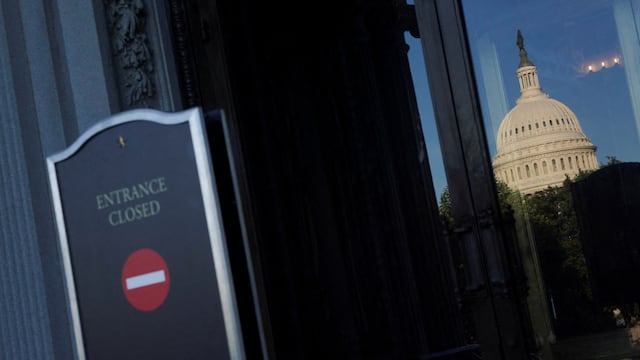The U.S. government has officially shut down as Republicans couldn’t get the votes they needed from the Democrats in Senate.

What services are likely to stop during the government shutdown?
The United States is closed for business. While some services will continue to function, others will be halted. It’s not 100% sure what will happen, but here’s what could happen...
BREAKING
— Amber Speaks Up (@AmberWoods100) October 1, 2025
Millions of federal workers in the U.S. will go without pay during a government shutdown that began at midnight.
But members of Congress (the very people who could prevent or end it) will still collect their pay checks. pic.twitter.com/kcOLTnniDx
Essential services will continue to be funded
When the government goes into a shutdown it will, as happened in 2013 and 2018, begin to prioritize the remaining funds for the most urgently needed services. Air traffic control, in-hospital medical care, border protection, law enforcement and power grid maintenance are considered essential services and will be maintained.
Likewise, Social Security, Medicare and Medicaid are among the mandatory spending programs that would continue to operate. As well, the Department of Veterans Affairs said that many of the benefits it provides would still be available. This includes healthcare, burials and benefits, “including compensation, pension, education, and housing benefits; and the Board will continue to process appeals.”
Do we know which services will stop?
Unfortunately, no. Although we have an idea based on previous shutdowns, each shutdown contingency plan is the result of each federal administration’s criteria so they could chose to focus on different priorities this time.
What might I not be able to do?
Get a loan or technical assistance for a small business
In the past requests for loans and other forms of financial aid from the federal government have been delayed for the duration of previous shutdowns and that is likely to happen again. However, those affected by natural disasters would be exempted.
Kaitlan Collins: The last two government shutdowns that happened came during President Trump's first term in office. The last shutdown, which was also the longest in modern American history, did cost the U.S. economy $11 billion. pic.twitter.com/8cv0MPT0tk
— Blue Georgia (@BlueATLGeorgia) October 1, 2025
Attend national parks
Although some parks remained open during the last shutdown, visitor services and park maintenance stopped running and the parks suffered as a result. Rubbish was not collected and areas of the parks were damaged, meaning that they may well choose to close completely if the government goes into shutdown again.
Passport renewal
Things as simple and necessary as renewing your passport could be a difficult task for those who need to do so during the shutdown. The State Department service that issues passports is not fully funded by Congress, meaning they may be able to continue working but that will depend on there being sufficient fees to cover operations.
Due to the lapse in appropriations, this X account will not be updated regularly until full operations resume, with the exception of urgent safety and security information. At this time, scheduled passport and visa services in the United States and at U.S. Embassies and…
— U.S. Embassy Madrid 🇺🇸🇪🇸 (@USembassyMadrid) October 1, 2025
Attend Smithsonian museums, the National Zoo
The White House closed Smithsonian Institution museums during the last two shutdowns, as well as National Zoo in Washington.
Public services closures could have significant impact
Social Security and Medicare
Payments for both programs will continue, but with potential delays due to the lack of workers in the office to process claims and act as customer support in the case of issues. It is likely that benefit verification and card issuance services will stop.
small business screwed again https://t.co/xaiNAWXyxw pic.twitter.com/ci483MScTj
— Sam Ro 📈 (@SamRo) October 1, 2025
Flights
Although air traffic controllers and the Transportation Security Administration will continue to work, delays at airport and air traffic slowdowns may be inevitable if a shutdown occurs. This is because, while they are required to work, they will be doing so without pay.
During the last, and longest shutdown, absenteeism more than doubled, and began to affect airport operations.
Food inspections
The Food and Drug Administration warn that there will be inspection delays on foodstuffs.
Postal service
In the past the American Postal Service has carried on running, but has warned in the past that “delivery standards would slow for some patrons.”
Related stories
“Mail traveling the greatest distances will be most affected, with a day or two of transit time added for some first-class mail and periodicals,” the agency said in September last year, when a shutdown was also threatened.
Health and Human Service
The National Institutes of Health (NIH) might not be able to process grant applications or admit new patients without the usual staffing numbers.


Complete your personal details to comment